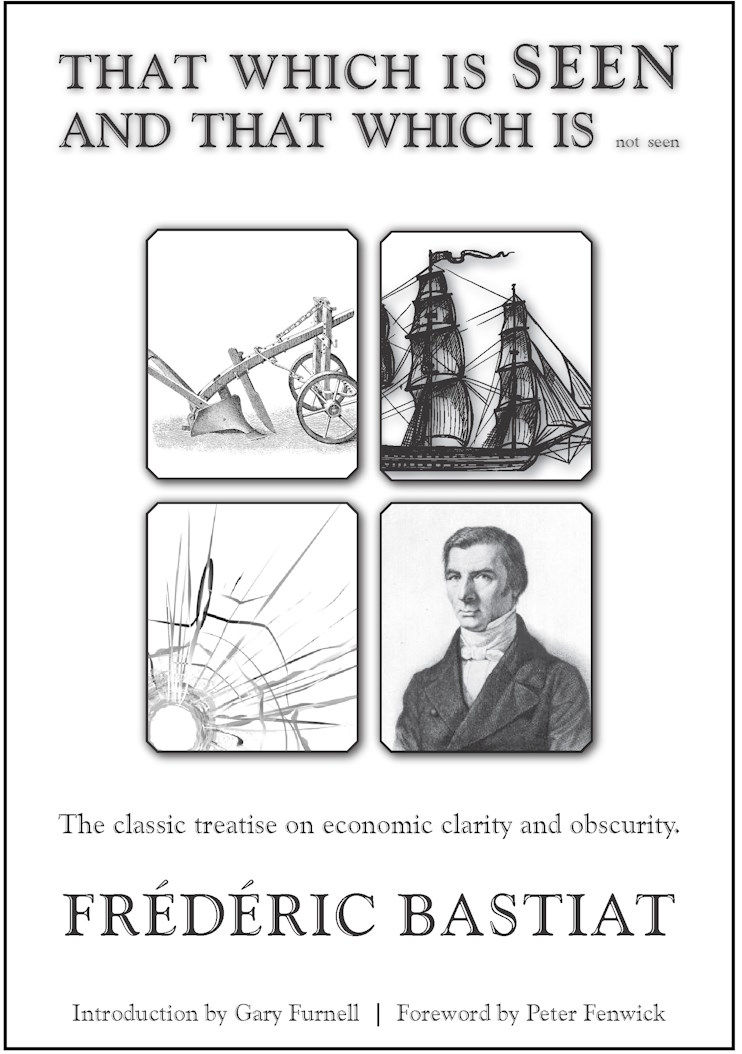Frederic Bastiat is Seen Again!
- Peter Francis Fenwick
- Feb 2, 2024
- 3 min read
Updated: Mar 13, 2025

Connor Court recently published Gary Furnell’s brilliant new edition of Frederic Bastiat’s classic
Murray Rothbard described Bastiat as a truly scintillating advocate of an untrammeled free market, and his brilliant and witty essays and fables as remarkable and devastating demolitions of protectionism and of all forms of government subsidy and control.
Enjoy his work and learn how to avoid the economic fallacies of our own era.
Nassim Taleb once opined that what your professor said in his lecture today was probably wrong, but if you were reading something written ten or twenty or fifty or a hundred years ago, that was still in print, it was probably true. It had stood the test of time.
Frederic Bastiat’s work is like that. He wrote in the 1840s. His work is still in print. It is much quoted. It has influenced the Austrian School of economics – thinkers like Mises, Hayek and Rothbard. Today, there is a Bastiat Society based in Great Barrington in Massachusetts USA with chapters all over the world.
The essence of Bastiat’s thought is that good economic policy requires that you consider both the immediate and the long-term consequences, and that you consider the effect not just on one group but on all groups. One hundred years after Bastiat, Henry Hazlitt expanded on these ideas in his book Economics in One Lesson. It too is still in print.
Bastiat wrote for everyman. His writing is clear and easy to understand. He was the first economic journalist. One of the best ever. He was witty too, often using reductio ad absurdum to make his case.
In A Negative Railway he discussed a proposed railway from Paris to Madrid. It had been suggested that it would be economically advantageous to have a forced break at Bordeaux, thereby creating work for the bargemen, porters, commissionaires, hotelkeepers and warehousemen of that city. Bastiat responded that it should also break at Angouleme, Poitiers, Tours, Orleans – in fact, that it should break at all intermediate points, thus creating work for the citizens of all these towns!
On free trade, in his Petition on Behalf of the Candlemakers, he skewered the protectionists on their own petard. He called for the Deputies to force Parisians to shutter their windows to protect the candlemakers from the unfair competition from the sun.
In The Law, he exposed moral and economic deficiencies. He told how governments, instead of protecting the lives, liberties, and property of their citizens, engage in legal plunder. They rob some people of legitimately earned wealth in order to provide the chosen and themselves with unearned benefits.
And in The State, he explained the consequence: “The state is the great fictitious entity by which everyone seeks to live at the expense of everyone else”.

In this edition of That Which is Seen and That Which is Not Seen, Gary Furnell expertly makes the text easily understood by the modern reader without sacrificing the richness of Bastiat’s style nor his urgency and passion for a free society.
This book will change how you view your world. Now, you will apply foresight as you examine the consequences of economic policies. Learning from Bastiat’s timeless examples, you will be able to identify the errors in contemporary proposals.
In resurrecting Frederic Bastiat, Gary Furnell has provided you with the wherewithal to apply commonsense to economics and a starting point for a lifetime of intellectual adventure.
You can purchase a copy of this wonderful book from your favourite bookstore or directly from the publisher Connor Court.
____
Bastiat is featured in my anthology, The Fortunate, where you will find a copy of his essay The Petition on Behalf of the Candlemakers.
____
In addition, for your children or grandchildren, you may like to purchase a copy of The Broken Window by Jonathan Newman. It is a comic strip version of the first chapter in That Which is Seen and That Which is Not Seen.
____
If you would like to be informed about future blogs, return to the home page and enter your details on the subscribe form. It is free.











Comments